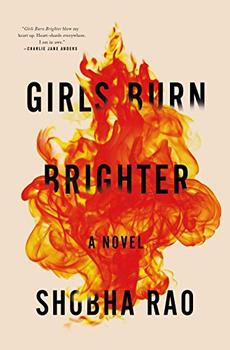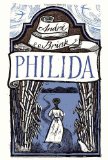Summary | Excerpt | Reading Guide | Reviews | Beyond the book | Read-Alikes | Genres & Themes | Author Bio

A fiercely poetic literary debut re-creating the life of an 19th-century slave woman in South Africa.
Slavery as it existed in Africa has seldom been portrayed—and never with such texture, detail, and authentic emotion. Inspired by actual 19th-century court records, Unconfessed is a breathtaking literary tour de force. They called her Sila van den Kaap, slave woman of Jacobus Stephanus Van der Wat of Plettenberg Bay, South Africa. A woman moved from master to master, farm to farm, and—driven by the horrors of slavery to commit an unspeakable crime—from prison to prison. A woman fit for hanging . . . condemned to death on April 30, 1823, but whose sentence the English, having recently wrested authority from the Dutch settlers, saw fit to commute to a lengthy term on the notorious Robben Island.
Sila spends her days in the prison quarry, breaking stones for Cape Town’s streets and walls. She remembers the day her childhood ended, when slave catchers came “whipping the air and the ground and we were like deer whipped into the smaller and smaller circle of our fear.” Sila remembers her masters, especially Oumiesies (“old Missus”), who in her will granted Sila her freedom, but Theron, Oumiesies’ vicious and mercenary son, destroys the will and with it Sila’s life. Sila remembers her children, with joy and with pain, and imagines herself a great bird that could sweep them up in her wings and set them safely on a branch above all harm. Unconfessed is an epic novel that connects the reader to the unimaginable through the force of poetry and a far-reaching imagination.
Unconfessed is rambling, circular and sometimes confusing; but it's also a lyrical, powerful and important piece of writing. Depending on your viewpoint you may side with the reviewer for Kirkus who describes it as "a gorgeous, devastating song of freedom that will inevitably be compared to Toni Morrison's Beloved" or Entertainment Weekly who thinks it "plods along like Gertrude Stein with a head cold."..continued
Full Review
 (1494 words)
(1494 words)
(Reviewed by BookBrowse Review Team).
According to the US State Department's latest Trafficking In Persons Report, slavery is the third largest type of illegal trade in the world (after drugs and weapons); every year between 600,000 and 800,000 people are trafficked across national borders with about 17,500 entering the USA. Many advocacy sources put the figures much higher, for example some say that about 1 million children in Asia alone are victims of the sex trade. In June 2006, British authorities announced that
slave auctions were being held at British airports with brothel keepers bidding on women arriving under duress from Eastern Europe.
Human trafficking appears to be flourishing because of the general move to globalization in a which the poor are increasingly ...

If you liked Unconfessed, try these:

by Shobha Rao
Published 2019
A searing, electrifying debut novel set in India and America, for readers of Rupi Kaur, about the extraordinary bond between two girls driven apart by circumstances but relentless in their search for one another.

by André Brink
Published 2013
In Philida, longlisted for the Man Booker Prize, André Brink—"one of South Africa's greatest novelists" (The Telegraph)—gives us his most powerful novel yet; the truly unforgettable story of a female slave, and her fierce determination to survive and to be free.
The single biggest problem in communication is the illusion that it has taken place
Click Here to find out who said this, as well as discovering other famous literary quotes!